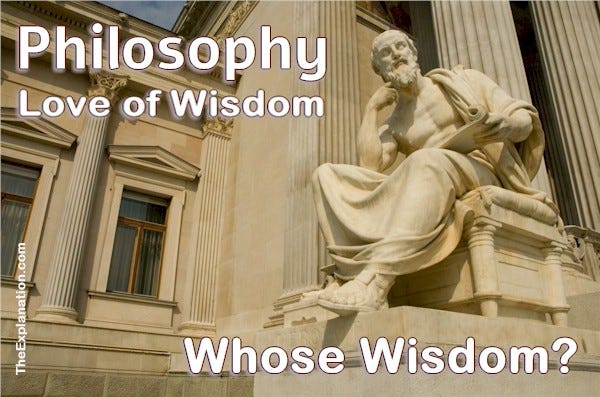What Is Philosophy? A Beginner’s Guide to the Love of Wisdom

Philosophy, derived from the Greek words philo (love) and sophia (wisdom), translates to "the love of wisdom." As a discipline, philosophy explores fundamental questions about existence, knowledge, morality, reason, and the nature of reality. It serves as a foundation for intellectual inquiry, encouraging critical thinking and open-minded exploration of life’s most profound issues.
This beginner’s guide delves into the essence of philosophy, its major branches, historical significance, and practical applications, providing students and curious minds with a roadmap to understanding this timeless pursuit of wisdom.
Understanding the Essence of Philosophy
Defining Philosophy
Philosophy seeks to address the "big questions" that have intrigued humanity for centuries:
- What is the meaning of life?
- How do we know what is true?
- What distinguishes right from wrong?
Unlike empirical sciences that rely on experiments and observations, philosophy uses reason, logic, and critical thinking to explore these abstract concepts.
Why Study Philosophy?
Philosophy sharpens analytical skills, enhances communication, and fosters intellectual curiosity. It’s not just an academic exercise but a tool for navigating personal and societal challenges. Understanding philosophy can enrich perspectives, helping individuals lead thoughtful and meaningful lives.
The Major Branches of Philosophy
Philosophy encompasses a variety of disciplines, each addressing distinct aspects of human thought and experience.
1. Metaphysics
Metaphysics examines the nature of reality and existence. It grapples with questions such as:
- What is the nature of being?
- Do we have free will?
- What is the relationship between mind and matter?
Famous metaphysical debates include discussions about the existence of God, the nature of time, and the concept of the self.
2. Epistemology
Epistemology studies the nature of knowledge and belief. Key questions include:
- What can we know?
- How do we know it?
- What distinguishes justified belief from opinion?
Philosophers like René Descartes and Immanuel Kant have profoundly influenced this field.
3. Ethics
Ethics, or moral philosophy, explores concepts of right and wrong. It asks:
- What is the good life?
- How should we act?
- Are moral values universal or relative?
Ethics applies to real-world dilemmas, from medical decisions to environmental conservation.
4. Logic
Logic focuses on reasoning and argumentation. It establishes principles for constructing valid arguments and detecting fallacies. Logic is foundational in disciplines like mathematics, computer science, and law.
5. Aesthetics
Aesthetics studies beauty, art, and taste. It raises questions such as:
- What is beauty?
- Is art subjective or objective?
- How does culture shape our appreciation of art?
A Brief History of Philosophy
1. Ancient Philosophy
Philosophy originated in ancient civilizations, notably Greece, India, and China. Thinkers like Socrates, Plato, and Aristotle in Greece laid the groundwork for Western philosophy, while Confucius and Laozi influenced Eastern traditions.
2. Medieval Philosophy
During the medieval era, philosophy often intertwined with theology. Scholars like Thomas Aquinas and Avicenna explored the relationship between reason and faith.
3. Modern Philosophy
The Enlightenment brought a shift toward reason and individualism. Philosophers such as Descartes, Locke, and Hume debated the nature of knowledge, governance, and human rights.
4. Contemporary Philosophy
In the modern era, philosophy addresses issues like existentialism, postmodernism, and artificial intelligence. Thinkers like Jean-Paul Sartre, Simone de Beauvoir, and Ludwig Wittgenstein expanded the discipline’s scope.
Practical Applications of Philosophy
While often considered abstract, philosophy has practical applications in many areas of life.
1. Critical Thinking and Problem Solving
Philosophy trains individuals to analyze problems, evaluate evidence, and construct logical arguments. These skills are invaluable in fields like law, business, and education.
2. Ethics and Decision-Making
Ethical principles derived from philosophy guide personal and professional conduct. For instance, medical ethics informs decisions in healthcare, while environmental ethics influences sustainability practices.
3. Political and Social Theory
Philosophy underpins political ideologies and systems. The works of philosophers like John Stuart Mill and Karl Marx continue to shape modern governance and social justice movements.
4. Personal Growth
Philosophy encourages self-reflection and mindfulness, helping individuals lead purposeful lives. Concepts from stoicism, such as resilience and acceptance, are widely applied in self-help literature.
How to Begin Your Philosophical Journey
1. Start with the Classics
Read works by foundational philosophers like Plato, Aristotle, Descartes, and Kant. These texts provide a solid introduction to key philosophical ideas.
2. Engage with Modern Thinkers
Explore contemporary philosophers who address current issues, such as Peter Singer on ethics or Martha Nussbaum on human rights.
3. Ask Big Questions
Philosophy begins with curiosity. Challenge yourself to think deeply about the world and your place in it.
4. Join Discussions
Participate in philosophical debates or join a philosophy club. Engaging with diverse perspectives enriches understanding.
5. Apply Philosophy to Life
Use philosophical principles to navigate challenges, make decisions, and understand others.
Philosophy in Education and Career
Studying philosophy hones transferable skills like reasoning, communication, and ethical judgment. Philosophy graduates find careers in diverse fields, including law, journalism, teaching, and public policy.
Conclusion
Philosophy, the love of wisdom, invites us to explore life’s most profound questions. By delving into its branches, history, and applications, students and enthusiasts can develop critical thinking skills, ethical awareness, and a deeper understanding of the world. Whether you’re a beginner or a seasoned thinker, philosophy offers a lifelong journey of discovery, reflection, and growth.
For those looking to explore further, online student assignment help resources can provide additional guidance on writing essays and understanding complex philosophical concepts. Embrace the love of wisdom and let philosophy enrich your mind and spirit!
